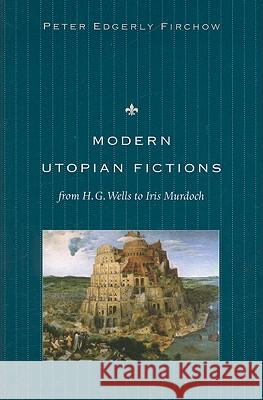Modern Utopian Fictions from H. G. Wells to Iris Murdoch » książka
Modern Utopian Fictions from H. G. Wells to Iris Murdoch
ISBN-13: 9780813215730 / Angielski / Miękka / 2009 / 218 str.
This book aims to put the fiction back into utopian fictions. While tracing the development of fiction in the writing of modern utopias, especially in Britain, it seeks to demonstrate in specific ways how those utopias have become increasingly literary--possibly as a reaction not only against the "social scientification" of modern utopias but also against the modern attempt to institute "utopia" in reality, notably in the former Soviet Union but also in consumerist, late-twentieth-century America. After an introductory discussion of how we understand--and how we should understand--modern utopian fictions, the book provides several examples of the ways in which those understandings affect our appreciation of utopian fiction. There are chapters on H. G. Wells's Time Machine; Bernard Shaw's Major Barbara; Aldous Huxley's Brave New World; George Orwell's Animal Farm and Nineteen Eighty-Four; William Golding's Lord of the Flies; and Iris Murdoch's The Bell. " Firchow] provides a truly fresh approach to utopian fiction by concentrating not on its social or political nature, but on its literary value. . . . By shining his light on the contribution modern utopian fiction makes to philosophy and literature, the author allows readers to see these texts in a whole new dimension. His introduction provides a useful overview of the position generally assigned to utopian texts as works of fiction, and each chapter offers an insightful analysis of an important utopian or dystopian work. . . . This book will inspire readers to devote more time to this literature, and it will be invaluable to those designing courses on utopian fiction. Highly recommended."--Choice Peter Edgerly Firchow, internationally recognized scholar and author of numerous works including Reluctant Modernists, W. H. Auden: Contexts for Poetry, Envisioning Africa: Racism and Imperialism in Conrad's "Heart of Darkness," The End of Utopia, and most recently Strange Meetings: Anglo-German Literary Encounters from 1910 to 1960, is professor emeritus of English at the University of Minnesota.











